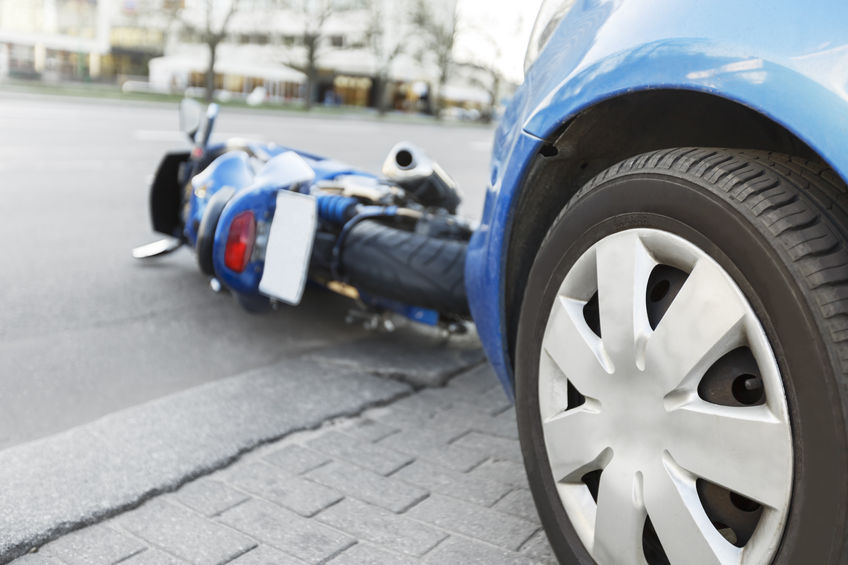10 Things All Car & Truck Drivers Should Know About Motorcycles
July 16, 2018 | Category: Motorcycle Accidents | Share“Motorcyclists are at risk every time they are on the road. Against other vehicles, they have a higher degree of likelihood of suffering from injuries if involved in an accident. Other drivers need to understand that Florida is a Mecca  for motorcyclists, and they may be anywhere at any time. Below are just two of the many motorcycle-involved accidents that happened in the last two months. We want to remind drivers of the ten things they should know about motorcycles which are provided by the Motorcycle Safety Foundation (MSF),” said Fort Myers Motorcycle Accident Attorney, Randall Spivey.
for motorcyclists, and they may be anywhere at any time. Below are just two of the many motorcycle-involved accidents that happened in the last two months. We want to remind drivers of the ten things they should know about motorcycles which are provided by the Motorcycle Safety Foundation (MSF),” said Fort Myers Motorcycle Accident Attorney, Randall Spivey.
Recent Motorcycle Accidents
WINK reported on June 10, 2018 that the Gilchrist Bridge in Punta Gorda was closed because of a fatal motorcycle accident.
In May 2018 a motorcyclist suffered injuries during a Cape Coral morning rush hour accident involving the motorcycle and another vehicle, according to the News-Press.
MSF Motorcycle Information
The MSF’s mission is “to make motorcycling safer and more enjoyable by ensuring access to lifelong quality education and training for current and prospective riders, and by advocating a safer riding environment.” MSF wants drivers to know the following about motorcycles and how to share the road with them:
- Over half of all fatal motorcycle crashes involve another vehicle. Most of the time, the car or truck driver, not the motorcyclist, is at fault. There are a lot more cars and trucks than motorcycles on the road, and some drivers don't "recognize" a motorcycle – they ignore it (usually unintentionally).
- Because of its narrow profile, a motorcycle can be easily hidden in a car’s blind spots (door/roof pillars) or masked by objects or backgrounds outside a car (bushes, fences, bridges, etc). Take an extra moment to look for motorcycles, whether you're changing lanes or turning at intersections.
- Because of its small size, a motorcycle may look farther away than it is. It may also be difficult to judge a motorcycle’s speed. When checking traffic to turn at an intersection or into (or out of) a driveway, predict a motorcycle is closer than it looks.
- Motorcyclists often slow by downshifting or merely rolling off the throttle, thus not activating the brake light. Allow more following distance, say 3 or 4 seconds. At intersections, predict a motorcyclist may slow down without visual warning.
- Motorcyclists often adjust position within a lane to be seen more easily and to minimize the effects of road debris, passing vehicles, and wind. Understand that motorcyclists adjust lane position for a purpose, not to be reckless or show off or to allow you to share the lane with them.
- Turn signals on a motorcycle usually are not self-canceling, thus some riders (especially beginners) sometimes forget to turn them off after a turn or lane change. Make sure a motorcycle's signal is for real.
- Maneuverability is one of a motorcycle's better characteristics, especially at slower speeds and with good road conditions, but don't expect a motorcyclist to always be able to dodge out of the way.
- Stopping distance for motorcycles is nearly the same as for cars, but slippery pavement makes stopping quickly difficult. Allow more following distance behind a motorcycle because you can't always stop "on a dime."
- When a motorcycle is in motion, see more than the motorcycle – see the person under the helmet, who could be your friend, neighbor, or relative.
- If a driver crashes into a motorcyclist, bicyclist, or pedestrian and causes serious injury, the driver would likely never forgive himself/herself.
“Being injured in a motorcycle accident because of another’s negligence can be a daunting experience. We at Spivey Law Firm, Personal Injury Attorneys, P.A. are here 24/7 to assist you. We have the experienced team ready when you and your family need us,” said Attorney Spivey.
Fort Myers Motorcycle Accident Attorney, Randall L. Spivey is a Board Certified Trial Attorney – the highest recognition for competence bestowed by the Florida Bar and a distinction earned by just one (1%) percent of Florida attorneys. He has handled over 2,000 personal injury and wrongful death cases throughout Florida. For a free and confidential consultation to discuss your legal rights, contact the Spivey Law Firm, Personal Injury Attorneys, P.A., in Lee County at 239.337.7483 or toll free at 1.888.477.4839, or by email to Randall@SpiveyLaw.com. Visit SpiveyLaw.com for more information. You can contact Spivey Law Firm, Personal Injury Attorneys, P.A.in Charlotte County at 941.764.7748 and in Collier County 239.793.7748.

